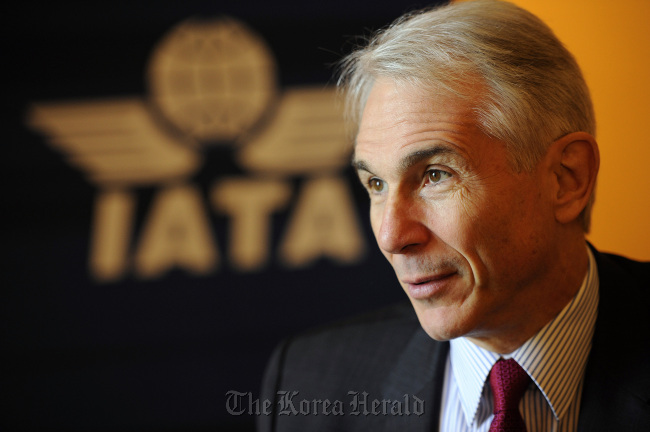BRUSSELS (AFP) ― The European Union executive caved in to critics of its contested carbon tax on air travel Monday, offering to “stop the clock” and freeze the measure for a year on flights to and from non-European nations.
The EU’s climate commissioner Connie Hedegaard said at a hastily arranged news conference that she had just recommended in a phone conversation with the 27 EU nations that the tax be suspended in the interests of negotiating a global CO2 deal.
“Finally we have a chance to get an international regulation on emissions from aviation,” Hedegaard said, referring to progress on the matter at a Friday meeting of the International Civil Aviation Organization in Montreal.
“But let me be very clear: if this exercise does not deliver ― and I hope it does ― then needless to say we are back to where we are today with the EU ETS (Emissions Trading Scheme). Automatically!” she stressed.
The suspension of the CO2 tax would affect flights “to and from non-European countries,” meaning European airlines will continue to pay.
The International Air Transport Association was quick to celebrate the announcement, with IATA chief Tony Tyler saying in a statement that it “represents a significant step in the right direction and creates an opportunity for the international community”.
 |
Tony Tyler, CEO of the International Air Transport Association (Bloomberg) |
“The commission’s pragmatic decision clearly recognises the progress that has been made towards a global solution for managing aviation’s carbon emissions,” Tyler said.
“The flexibility shown by the European Commission demonstrates that the ICAO process is working,” he added.
Hedegaard said she had recommended “stopping the clock for one year”, until after the next ICAO general assembly in autumn 2013, due to signs at Friday’s ICAO talks of a move towards a global deal, or “market-based mechanism”.
The EU imposed the scheme on Jan. 1, but 26 of ICAO’s 36 members, including India, Russia, China and the United States, have opposed the move, saying it violates international law.
The EU tax forces airlines operating in the bloc, whatever their flag, to buy 15 percent of their carbon emissions, or 32 million tonnes, to help battle global warming.
Pay-up time however was due only from next year, once billing for 2012 had been completed.
In a statement, the Association of European Airlines”cautiously welcomed” the EU decision, saying it hopes the moratorium “will stimulate action within the notoriously slow-moving ICAO, which must come up with concrete progress towards a global approach.”
“As international tensions over the issue have escalated, European airlines have been facing the very real prospect of discrimination and retaliation in our most important global markets, said AEA’s acting chief, Athar Husain Khan.
Airbus likewise welcomed the suspension, saying it brought the aviation industry “one step closer” to a coordinated approach to civil aviation emissions.
Brussels had said the scheme would help the 27-nation bloc achieve its goal of cutting emissions 20 percent by 2020.
But airlines allege it will cost 17.5 billion euros ($21.2 billion) over eight years.
The EU counters that the cost is manageable, estimating it could add between four and 24 euros to the price of a round-trip long-haul flight.
India and China have been at the forefront in opposing the scheme. India in April barred its airlines from complying with the EU carbon fee, joining China in resistance.








